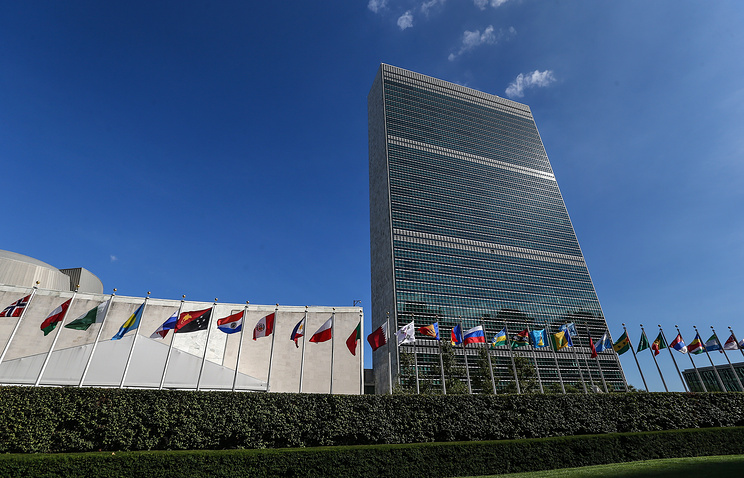Statement by Anna Evstigneeva, Deputy Permanent Representative of Russia to the UN, at an open VTC of UNSC members "United Nations Peacekeeping Operations: Police Commissioners"
Mme. President,
We thank ASG Alexandre Zouev and chiefs of police components of UN missions in South Sudan, Central African Republic, Mali, and Haiti for the assessments they shared.
We also would like to thank all police peacekeepers for their faithful service and implementation of their assigned tasks in the challenging environment of field missions, additionally exacerbated by the spread of the coronavirus. We commend preventive measures taken by the Secretariat to combat the pandemic and ensure that peacekeepers be able to proceed with uninterrupted implementation of their mandates.
The relevance of police component for UN peacekeeping activity can hardly be overestimated. As of today, approximately 9 thousand police peacekeepers are deployed in 16 peacekeeping and special political missions of the United Nations, and this figure is steadily growing.
The recent report of UNGA Committee on Peacekeeping (C34) also highlights the special role of police contingents in UN peacekeeping operations. They implement the crucial mandate to protect civil population by patrolling, monitoring, and countering any public peace-breakers. They help national law enforcement bodies enhance their capacity and carry out security sector reforms.
Police peacekeepers increasingly often encounter situations when they have to combat organized crime, illegal drug trafficking, as well as human trafficking and other threats to security. Police commissioners constitute a connecting link between the population, peacekeeping presence and governments of host countries. Their efforts strengthen public trust in power institutions; lay down the fundament for national reconciliation and post-conflict recovery.
Blue Berets should continue to act within the framework endorsed by the Member-States, in accordance with the Security Council mandate, the UN Charter, and basic peacekeeping principles. The main condition for effective work of police peacekeepers is constructive relations with the host country given respect for its sovereignty and due account for its national specifics.
We agree that police commissioners can effectively implement their tasks only when they receive sufficient material, technical and staffing support. Besides, there is a need to improve planning and management within missions and avoid duplication of efforts.
It is counterproductive to endow police commissioners with extrinsic functions, e.g. of political or human rights character, that distract attention from the mandated tasks and decrease the overall efficiency of their activity.
Mme. President,
The Russian Federation keeps enhancing its contribution to UN police peacekeeping, i.a. under the commitments assumed at summits of heads of police agencies.
Since 1992, over 600 employees of Russian internal affairs bodies have become UN peacekeepers. Our internal affairs agencies have created a staff pool for UN peacekeeping operations, thanks to which we can second employees of Russian internal affairs bodies to UN missions on a regular basis, even amidst a pandemic.
Today our police commissioners are involved in South Sudan, Democratic Republic of the Congo, Colombia, Cyprus, as well as in the UN Mission in Kosovo. The share of women among them constitutes more than 20%.
Specialized UN-certified center of the Russian Ministry of Internal Affairs regularly trains police peacekeepers, including foreigners, many of whom are women. Much attention is paid to language training that depends on specifics of prospective host country.
Ever since 2000 this facility has trained over 1750 Russian officers and over 600 foreign police peacekeepers from more than 50 countries from across the globe. 150 of them were women-commissioners from Russia and a number of African states.
The Russian Internal Ministry’s training center for peacekeepers has scheduled a course for Russian police officers and their counterparts from African states. It will be taking place from 16 November to 25 December, 2020, and will result in a SAAT exam with participation of UN representatives.
We also stand ready to deploy experts to specialized police groups in UN missions, i.a. jointly with other states. We anticipate active work on secondment of Russian Internal Ministry workers to contract offices in UN field presences and United Nations Police Division on a competitive basis.
Thank you.
